Go back to Mali.
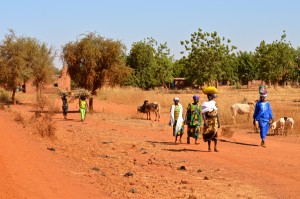
Burkina Faso.
We reached Ouagadougou in the evening after a series of flights via Seattle, Paris and a 2 hour stop in Niamey, Niger. Salvador picked us up at the airport and after a quick money exchange with some after-hours contact we were finalizing Mali plans over some excellent grilled fish at an outdoor restaurant – the last non-chicken/non-veggie/non-goat meal we’d have until returning to Ouaga more than two weeks later. Salvador informed us of a new gendarmerie or military station near Hombori and multiple road blocks in Mali that could pose a major obstacle. Those were a consequence of the recent terrorist attack on a hotel in Bamako more than a thousand kilometers away from Hombori area. The best solution would be to camp in the mountains and away from the main road (and away from the gendarmes and bandits or jihadists – none of them are fond of hiking apparently)…and to roll the dice on not running across any issues during the drive up north into Mali. Salvador had also prepared and packed the supplies we’d need including non-perishable food, water and extra diesel for the car.
.
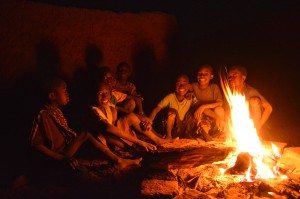
Village of Sebendourou.
Next day, we left Ouaga promptly at 6 in the morning and headed north towards the town of Kongoussi some 100 km away. The road was paved but potholed to the point where it was usually quicker, not to mention better for the car, to drive in the ditches on either side. We reached Kongoussi in time for the market to be in full swing. There we picked up a few hundred pounds of fruits and vegetables (including ten watermelons) that would keep us scurvy free for the next two weeks in Mali. Our first encounter with an African market and we loved it! Another 100 km, this time on an unpaved road, brought us to the town of Djibo – the last major outpost in Burkina. Here we stopped for some late lunch and most importantly the last beer for the next two weeks. North of Djibo, we left the roads and proceeded essentially cross country (another 100+ km) relying on Salvador’s familiarity with the area and some donkey cart/motorcycle tracks through the vegetated sections. Views of donkeys were supplemented by camels here. We passed Peul peoples’ encampments and traditional (mostly) Dogon villages including a stop in a village of Lassa which on that day held a small market. By the time we reached the next village, we were in Mali. No checkpoints, no indication of any kind that we had traversed from one political entity into another. In the fading light, we pulled into the village of Sebendourou (Seguendourou) where Salvador delivered some school supplies and got an OK from the village elder for us to camp in the relative safety of the village (right in the center square in fact). We bought a live chicken which was turned into a tasty stew with some of our fresh veggies in about two hours. We sat-in on a kids’ Quran recitation class by the campfire and faded out to sleep under a star filled Malian sky – the first of countless fantastic experiences yet to come on the trip.
.
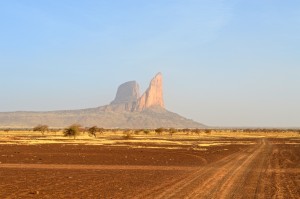
First sighting.
In the morning, we brewed up some coffee and chugged down a quick breakfast all while being surrounded by the entire village populace. A free show no doubt. This would prove to be a common occurrence and something that we’d quickly get used to – stop in the middle of nowhere for some quick lunch and in a minute we’re surrounded by 20 children watching our every bite. We continued our northward drive across a progressively more barren plain of the Sahel and within the hour got our first glimpse of the objective. Like a huge sail ship appearing through a dusty haze on the horizon – there she was, the Hand Of Fatima (or Main De Fatma). Its five principle formations partially superimposed on one another and effectively reduced to two along our line of sight. Two kilometers outside of Daari, we joined the “paved” road and pulled into Salvador’s old encampment area near the base of the towers. It is hard to get a sense of scale of the formations from photographs – they are huge! The sight (and the wind!) blew us away. This was a little taste of the conditions for the next 4 or 5 days.
Photos
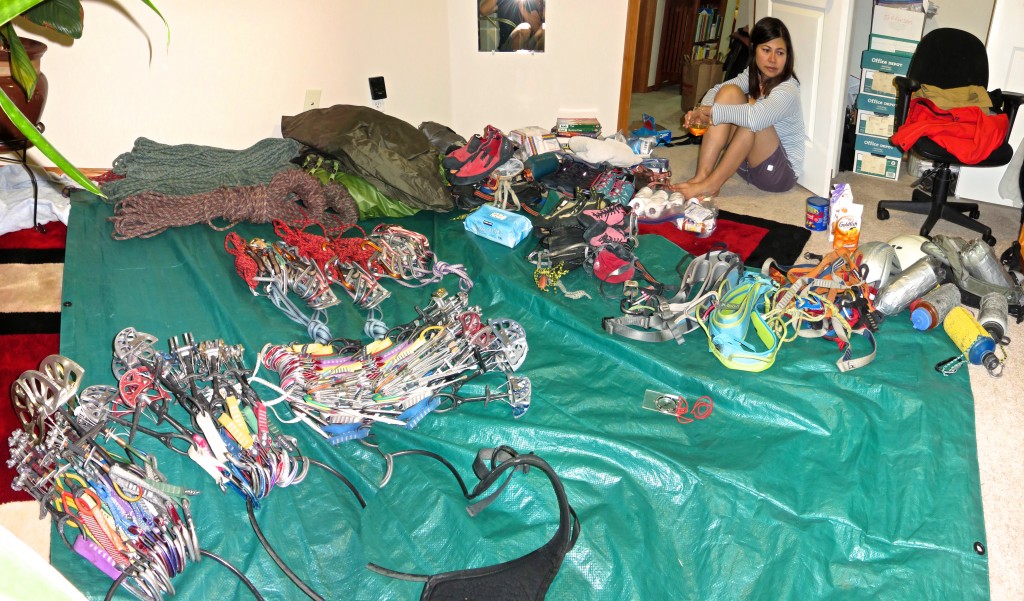
As usual, the fun starts with a good packing session at home (Dec. 2015).
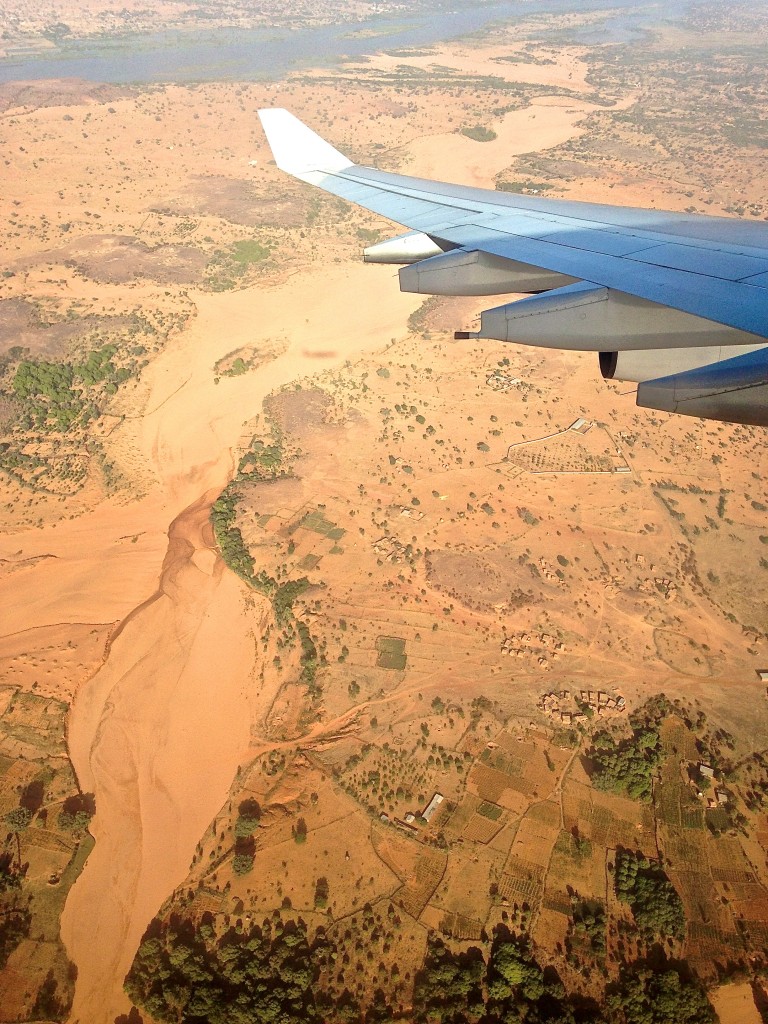
The Paris-Ougadougou flight makes a stop in Niamey, Niger. Here’s the approach with the Niger River visible (Dec. 2015).
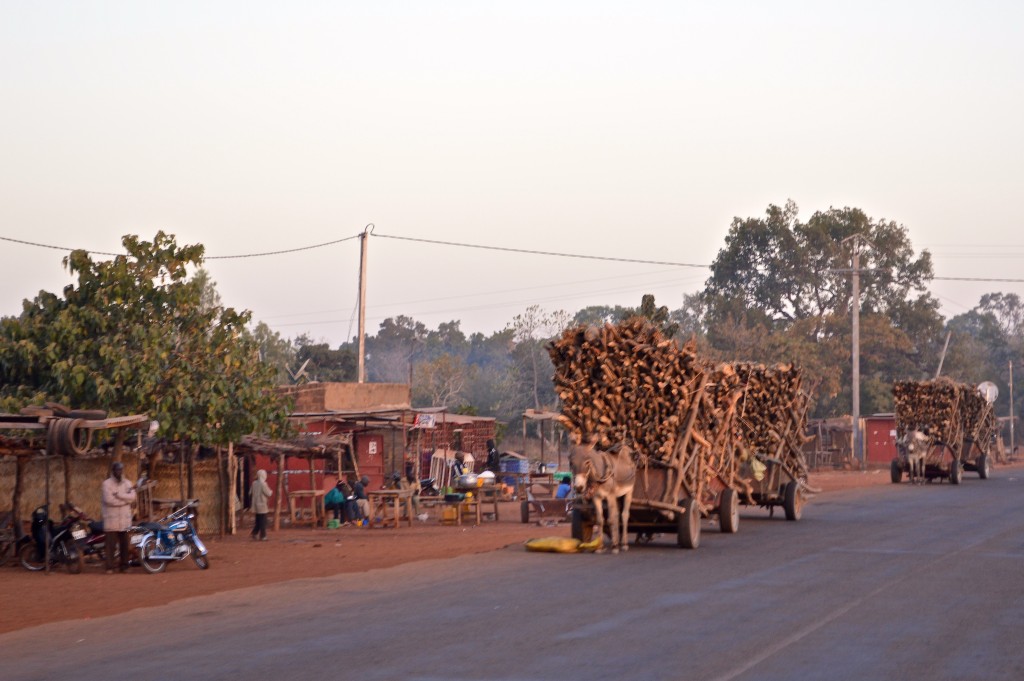
Outskirts of Ouagadougou in the morning. We’re heading out of the city while the donkey carts are bringing firewood into the city (Dec. 2015).
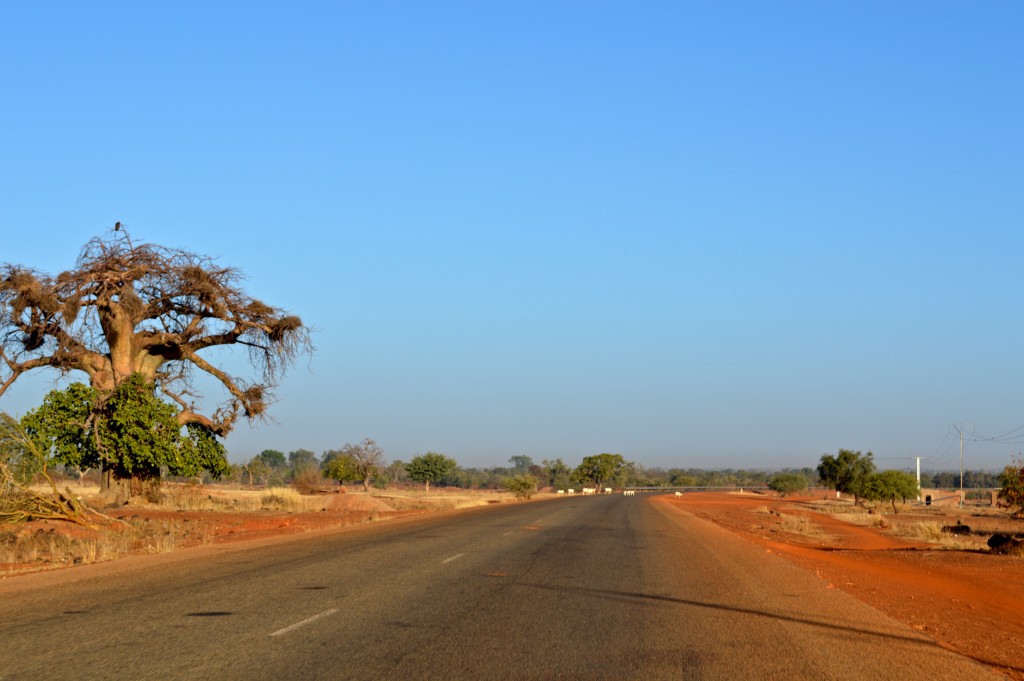
The first 100km of the drive through Burkina Faso. This is the stretch north of Ouagadougou and before Kongoussi (Dec. 2015).
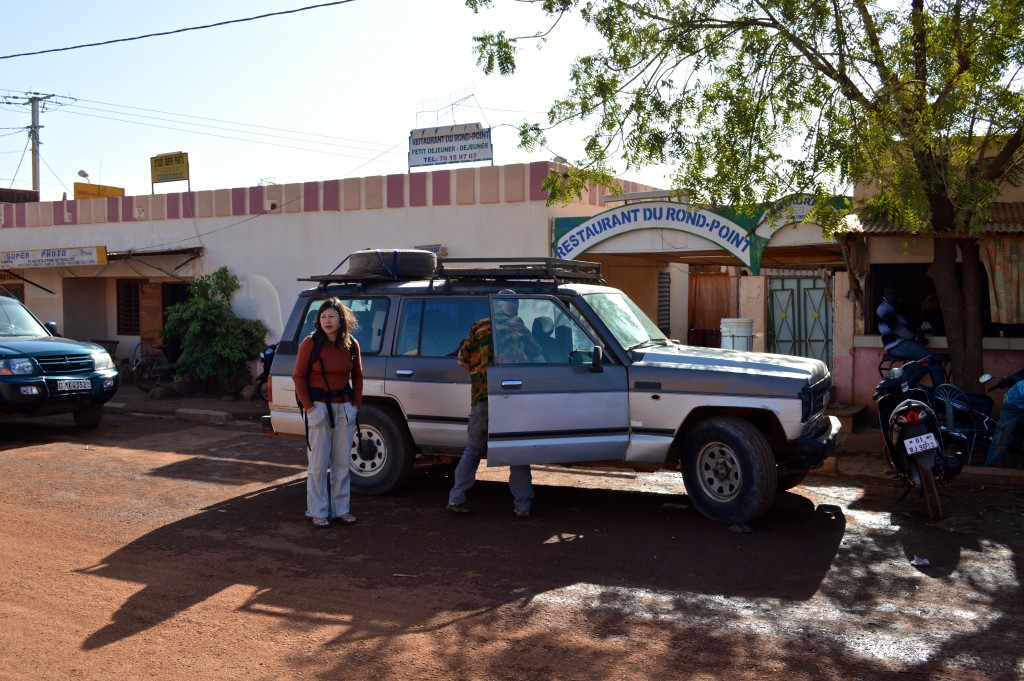
Quick brunch in Kongoussi and then off for some veggie shopping at the market (Dec. 2015).
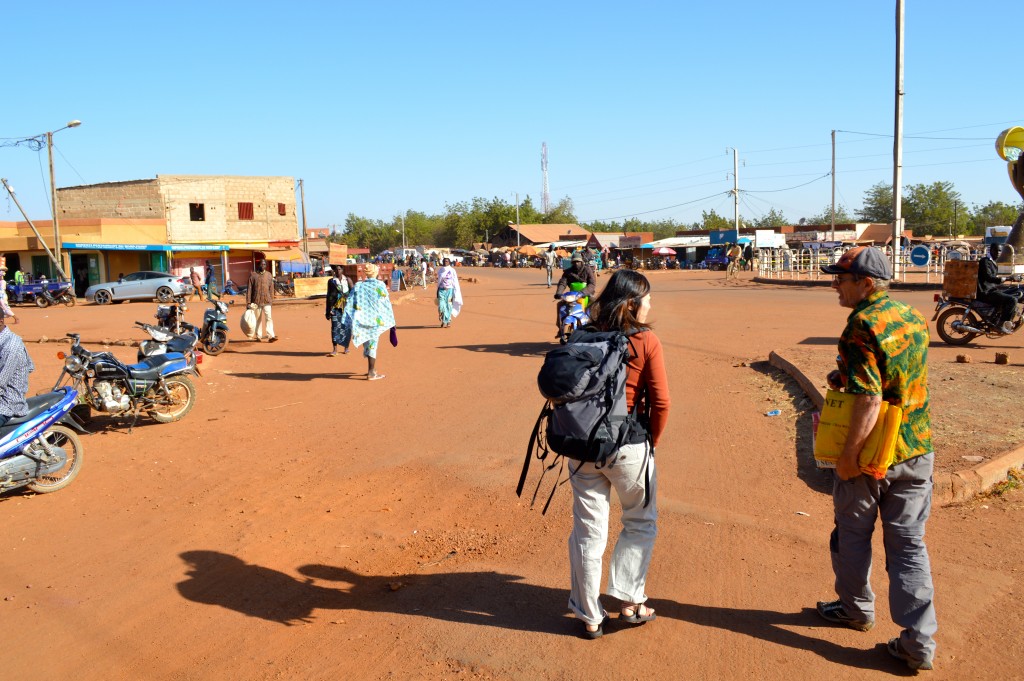
Kongoussi (Dec. 2015).
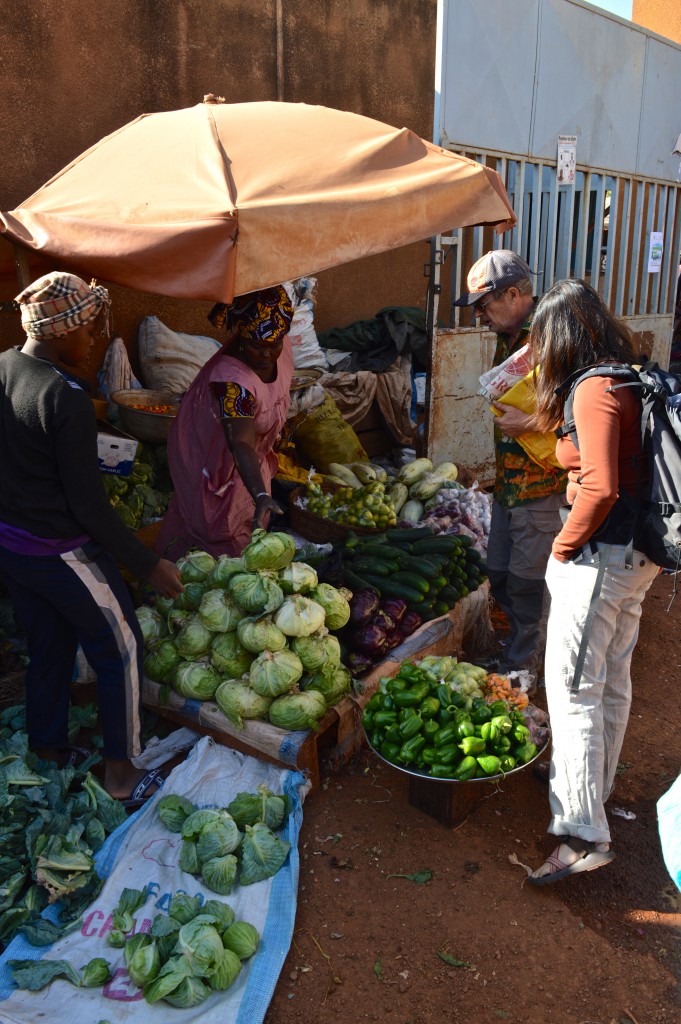
Salvador and Shirley picking up some veggies for our 2 week road trip (Dec. 2015).
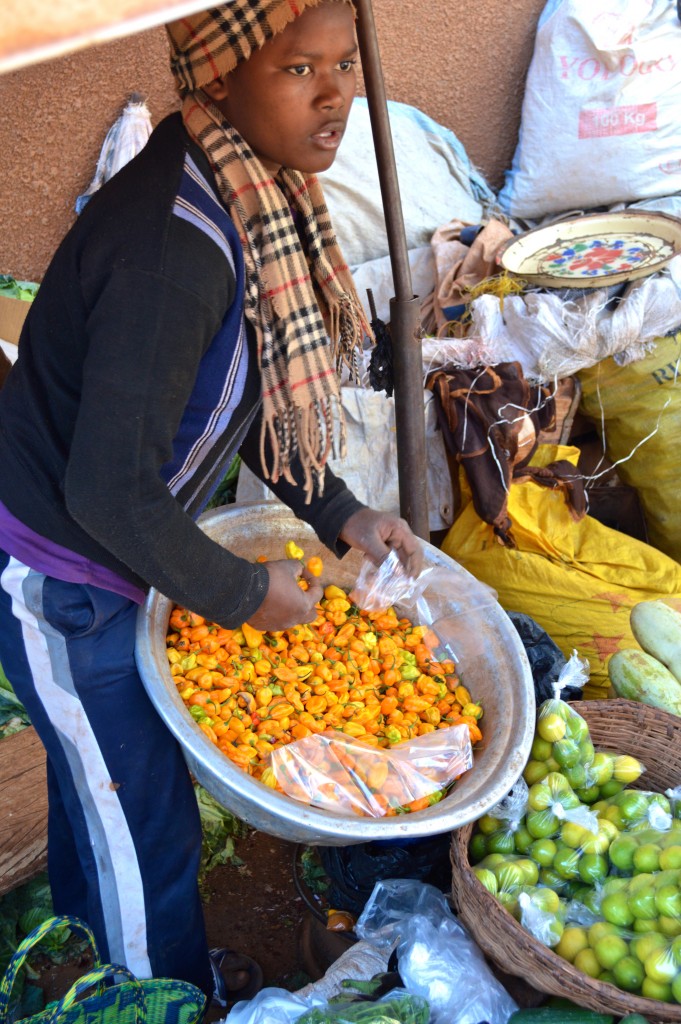
Everything tasted better with chilies and limes (Dec. 2015).
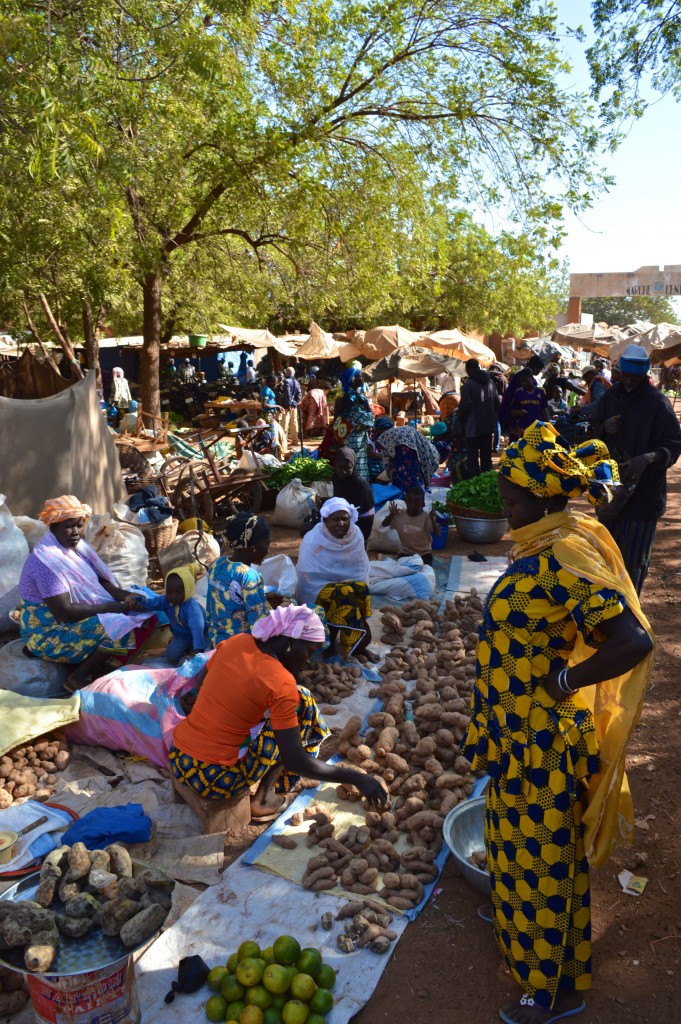
More Kongoussi market sights (Dec. 2015).
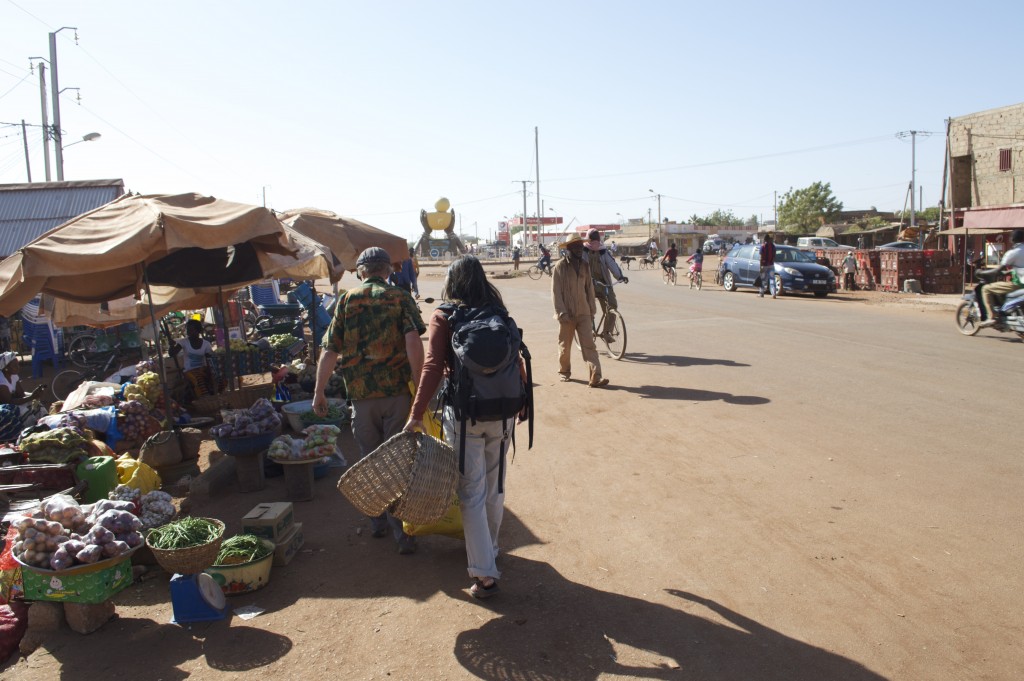
The fruits and vegetables we picked up here lasted us for nearly the entire stay in Mali (Dec 2015).
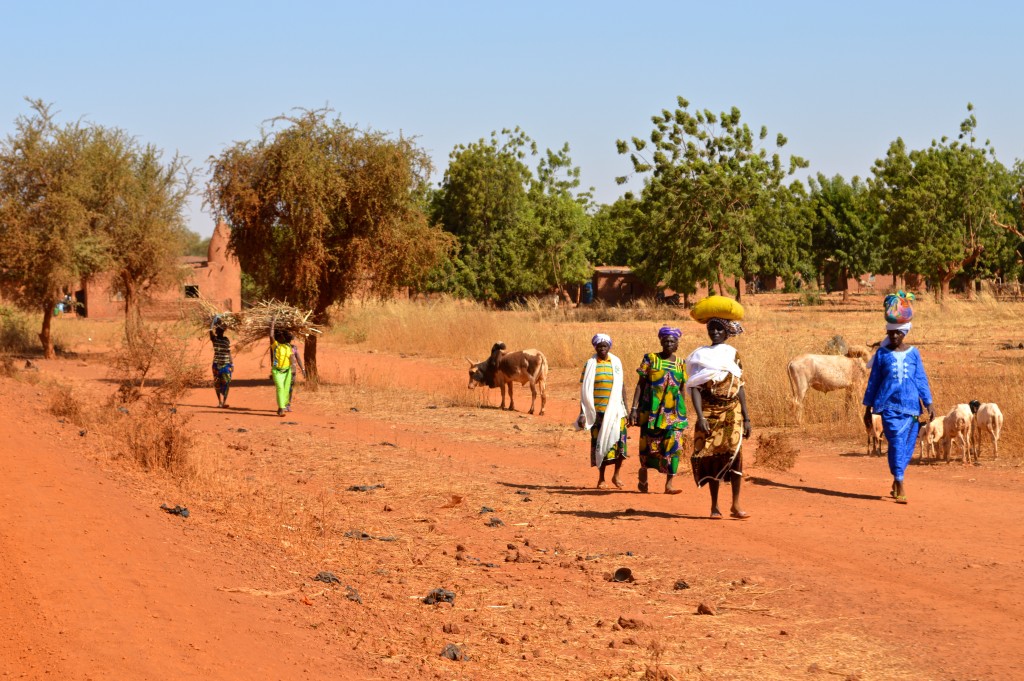
North of Kongoussi, the pavement ended as we drove north towards Djibo, the last town before the “border.”
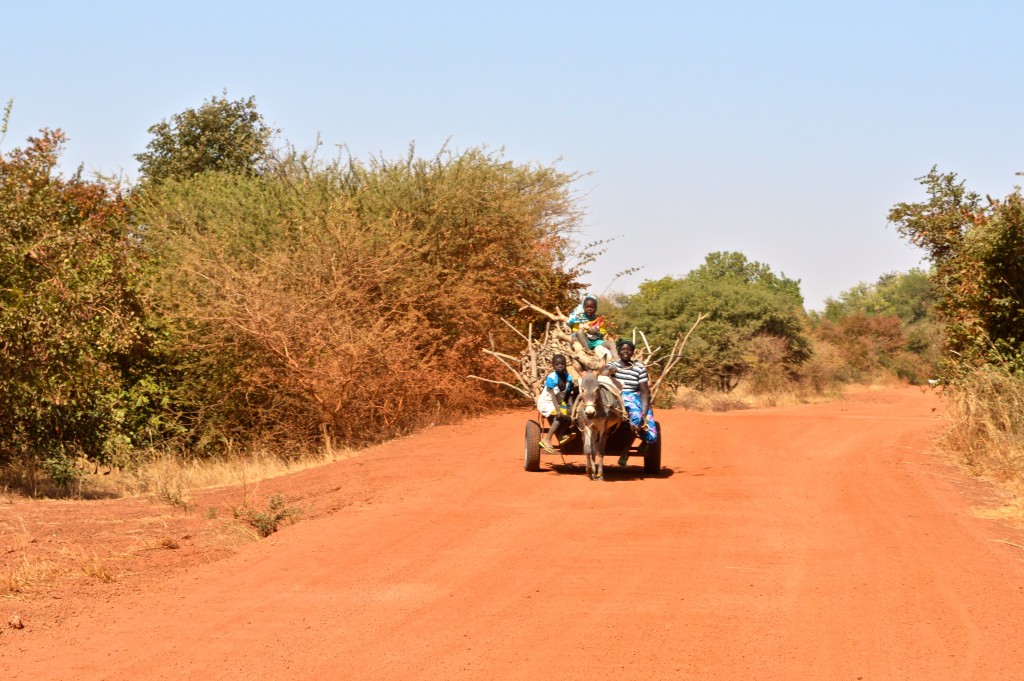
More road sights on the way up to Djibo (Dec. 2015).
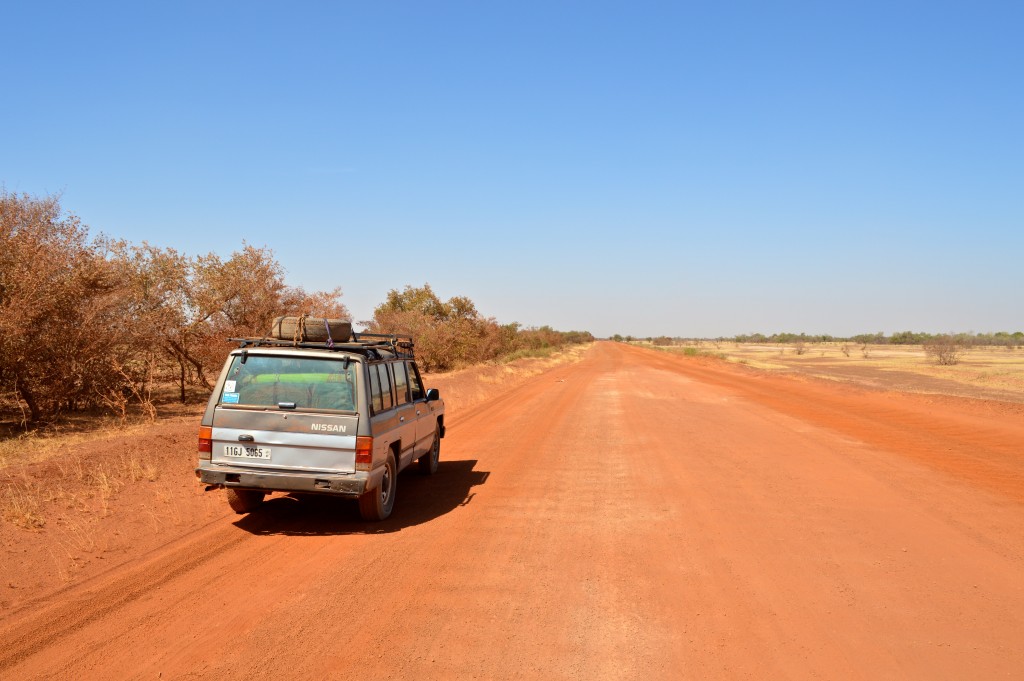
Burkina Faso (Dec. 2015).
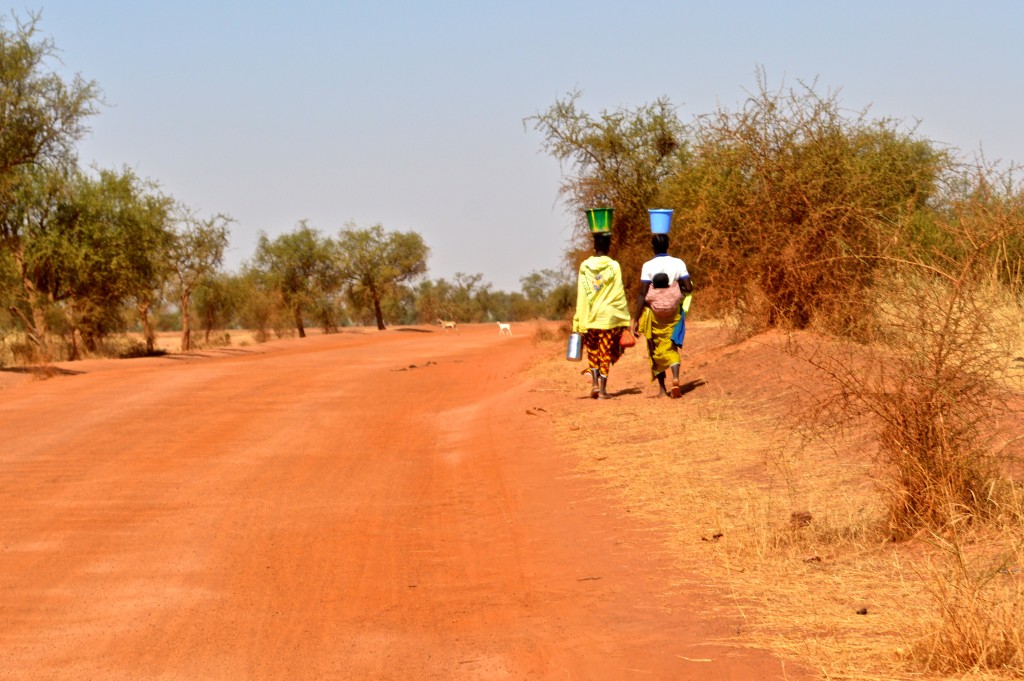
Nearing Djibo.
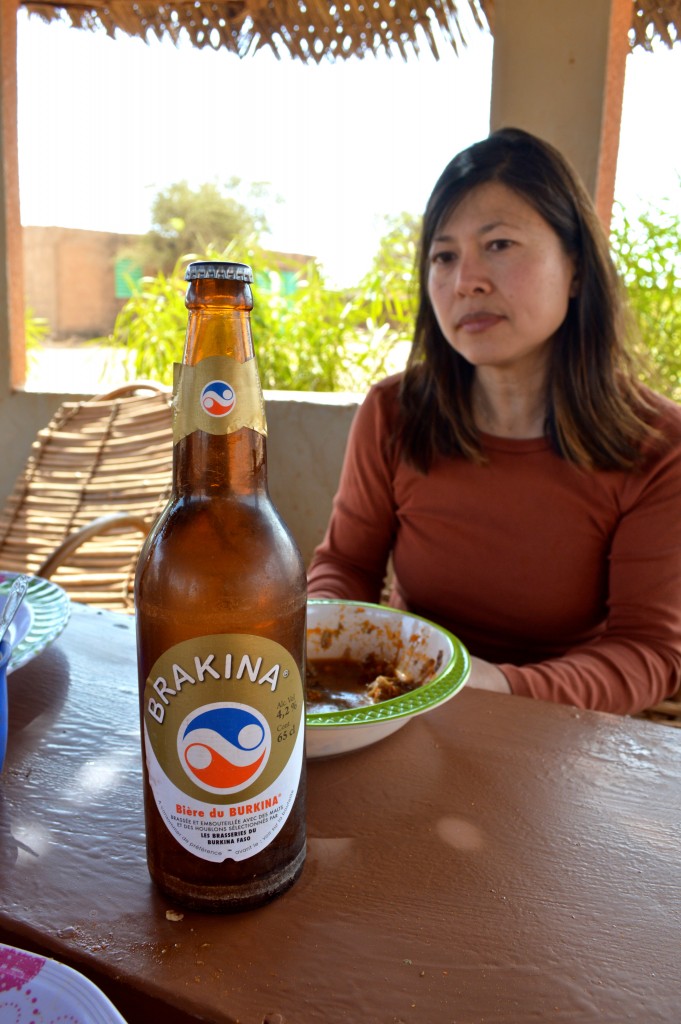
Djibo and the last beer for the next 12 or so days (till Dogon villages).
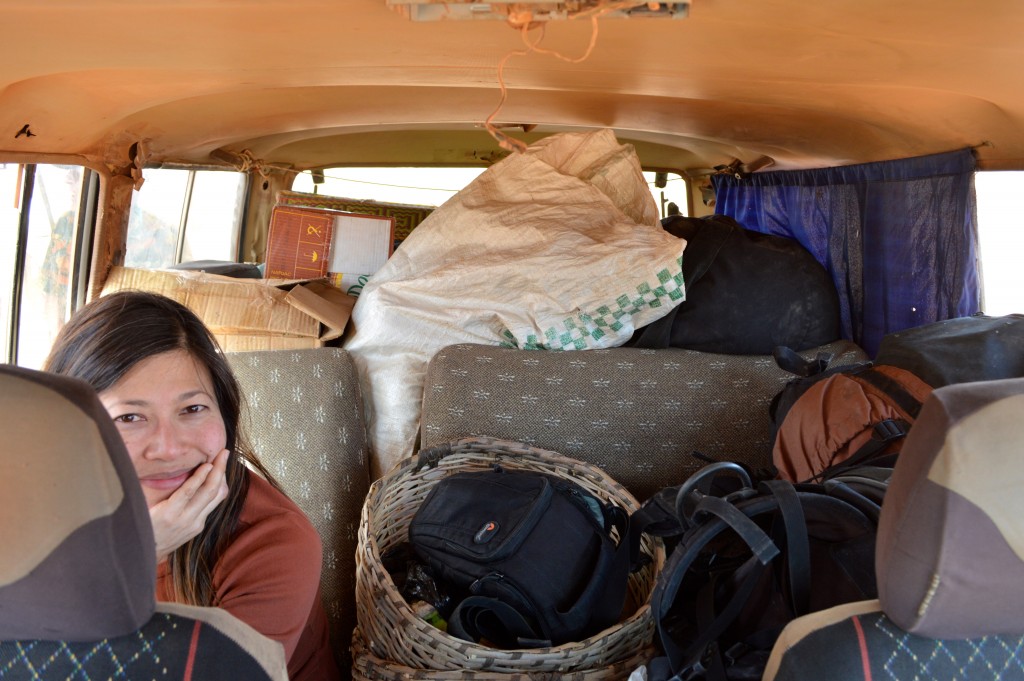
Water, food, gear, diesel – we had enough to survive two weeks in the desert (Dec. 2015).
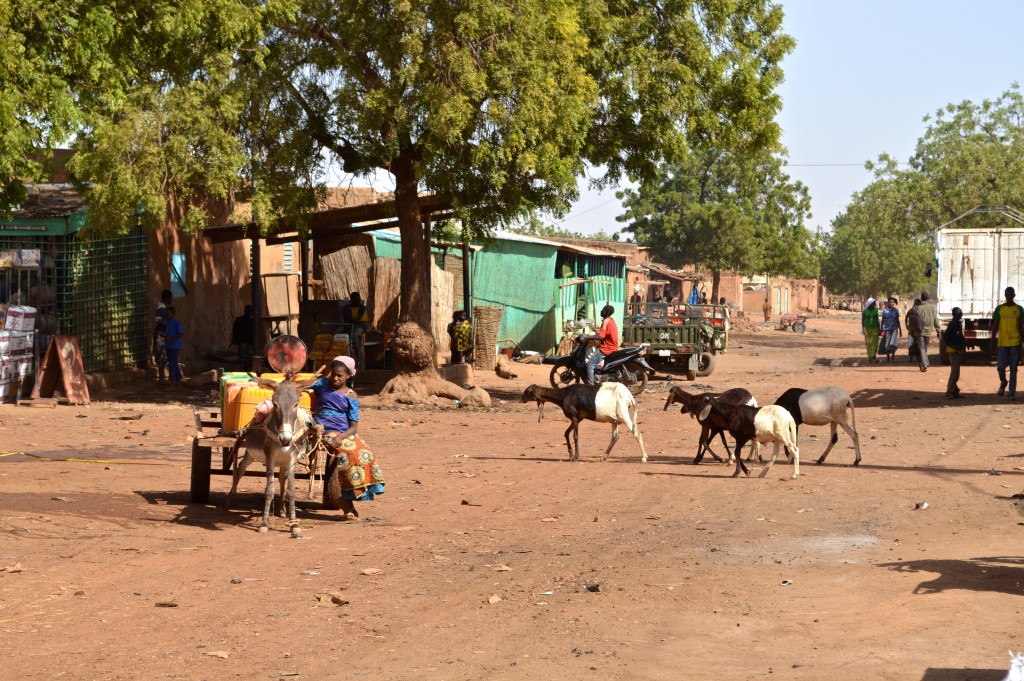
A street in Djibo (Dec. 2015).
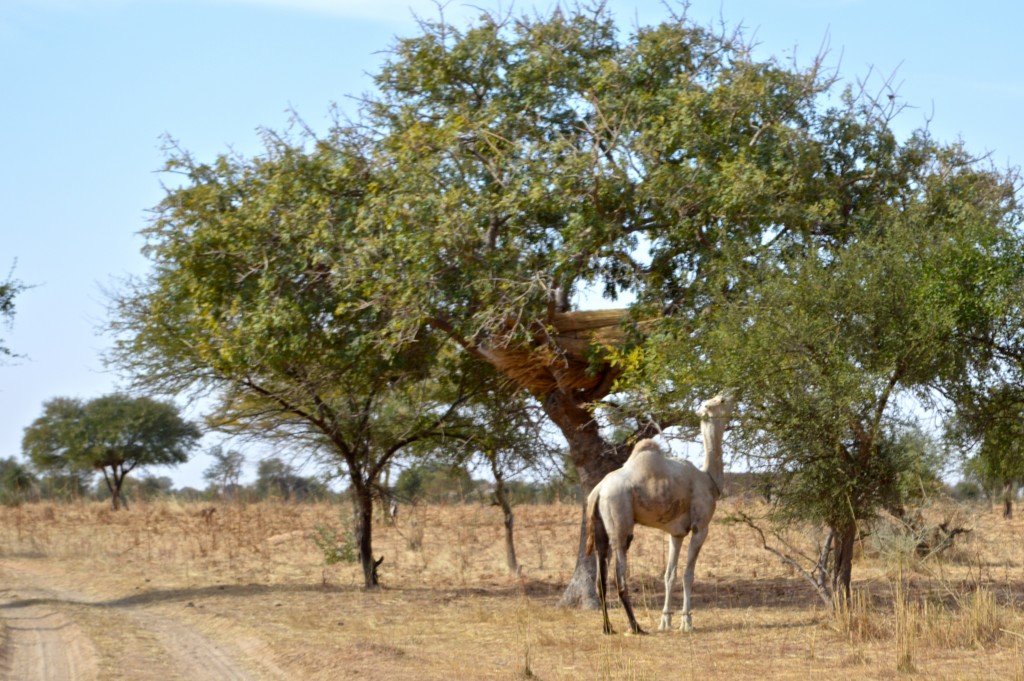
As we neared the Mali border, sights of donkeys were supplemented with sightings of camels (Dec. 2015).
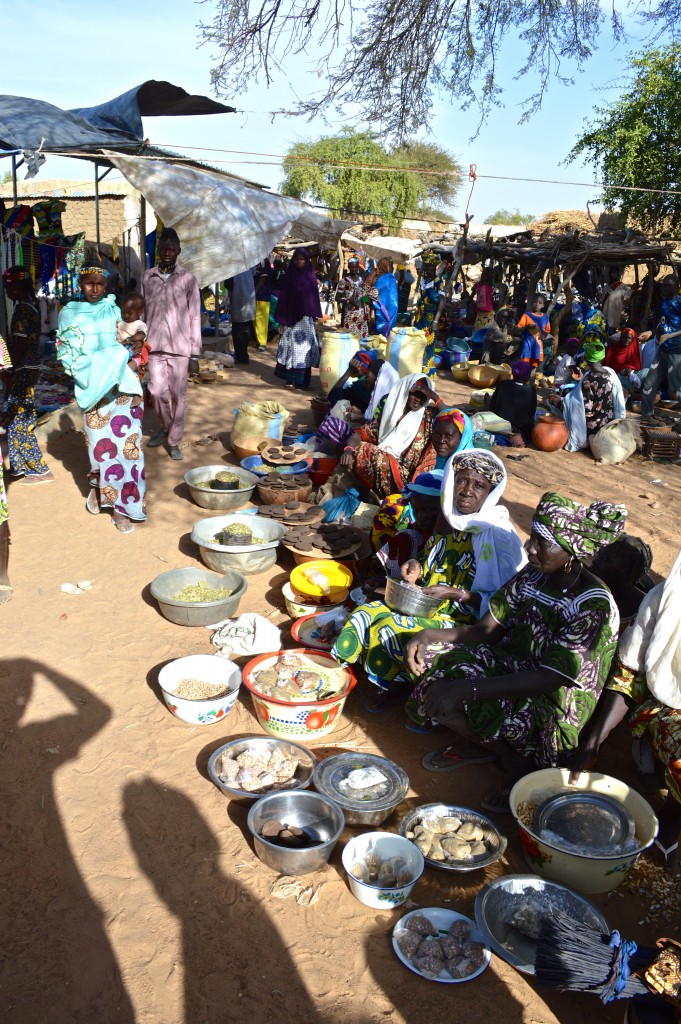
A market in the village of Lassa – the last village in Burkina Faso (Dec. 2015).
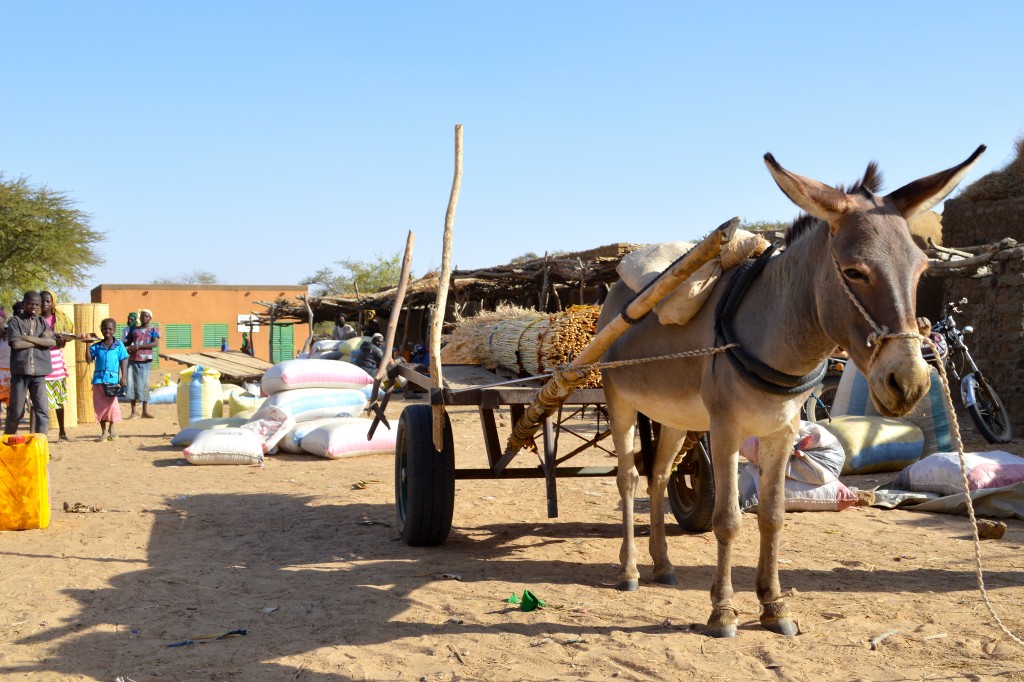
Lassa market (Dec. 2015).
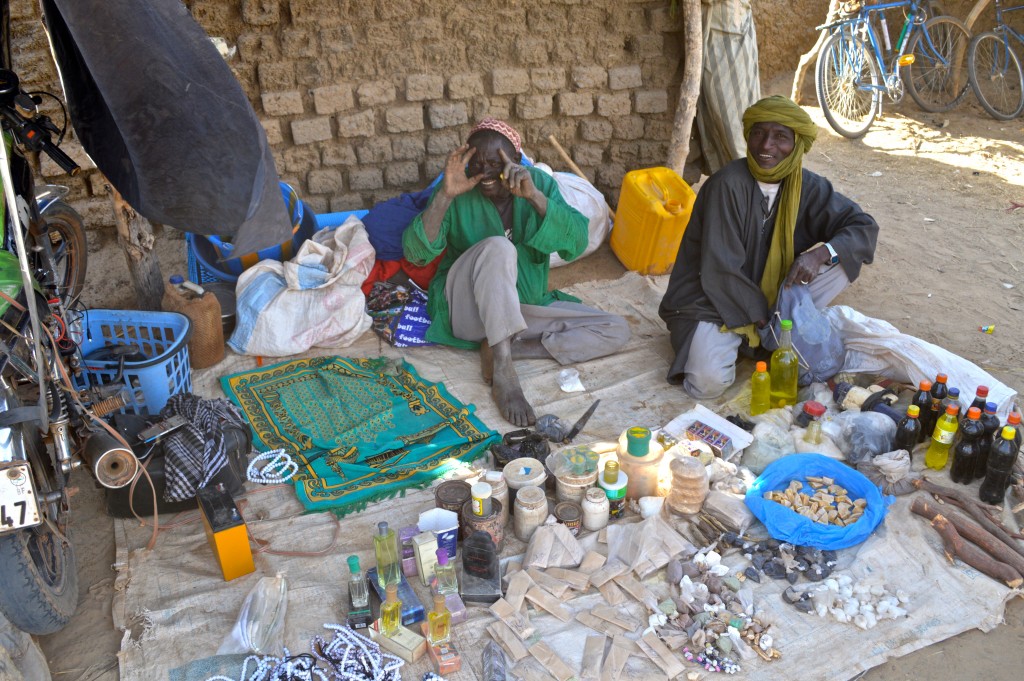
Lassa market scenes (Dec. 2015).
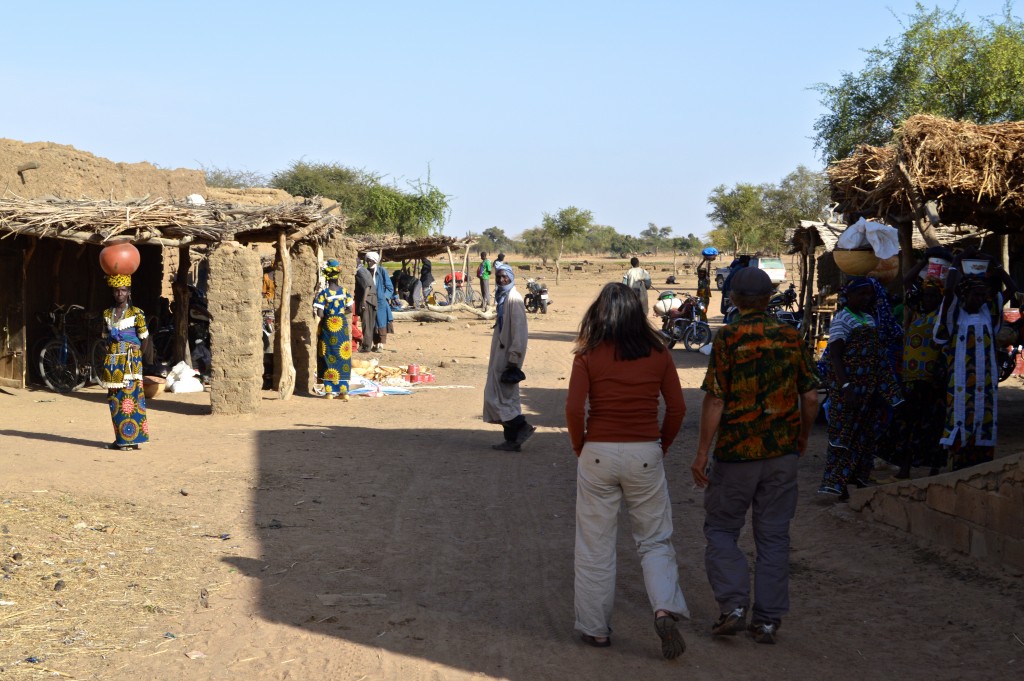
More scenes from Lassa (Dec. 2015).
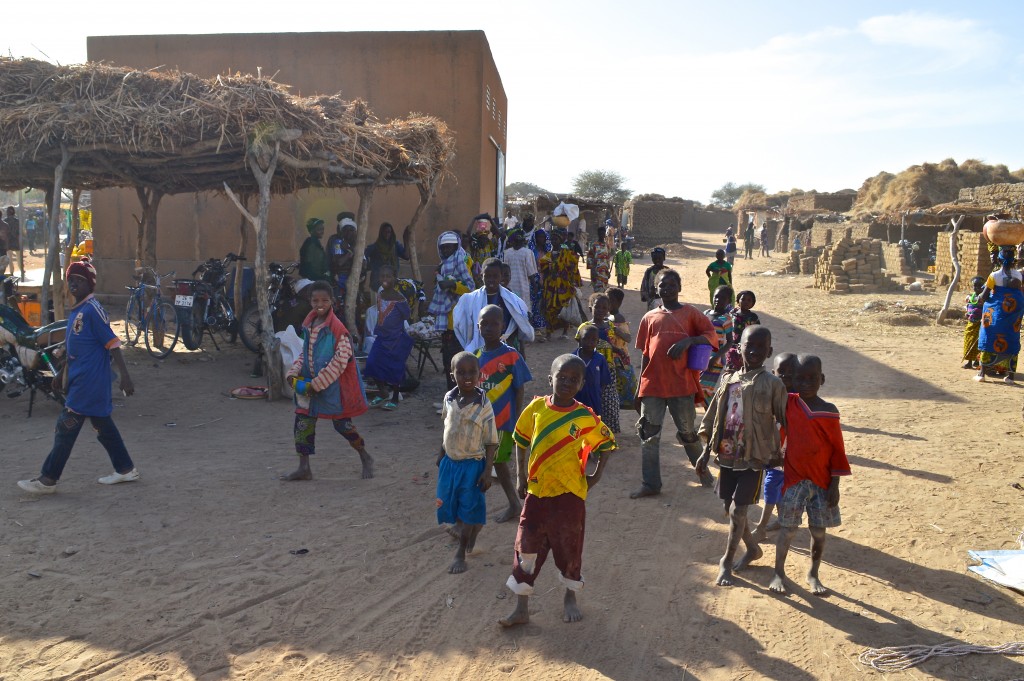
Children of Lassa seeing us off – now, off to Mali we go (Dec. 2015).
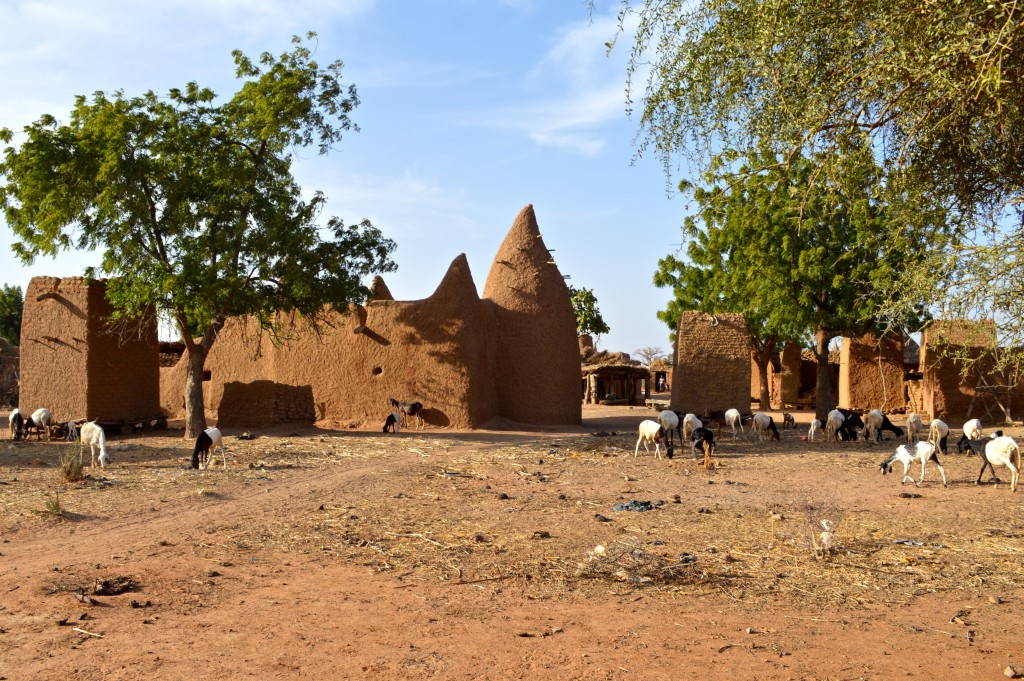
Somewhere between Burkina Faso and Mali (Dec. 2015).
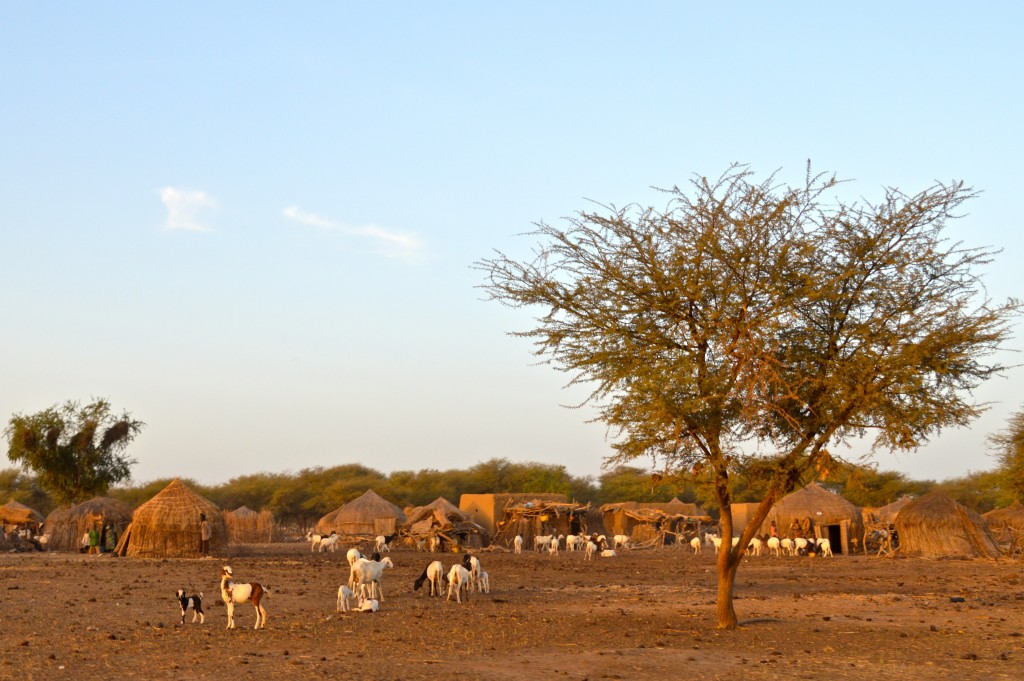
A Peul camp somewhere between Mali and Burkina Faso (Dec. 2015).
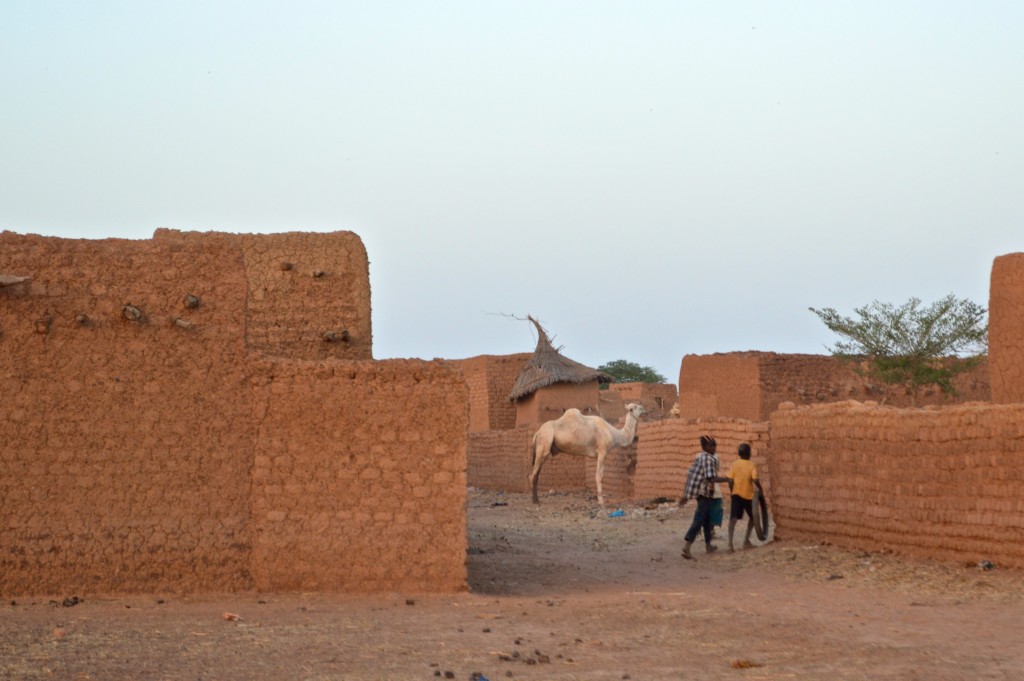
One of the first villages on the Mali side of the nonexistent border (Dec. 2015).
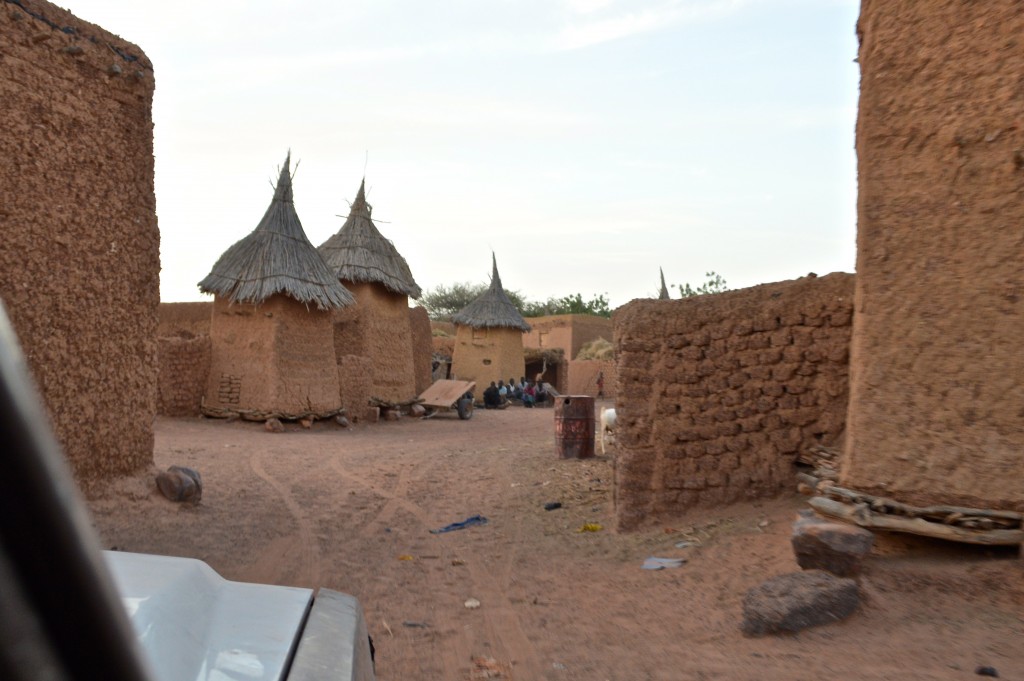
The village of Sebendourou in Mali (Dec. 2015).
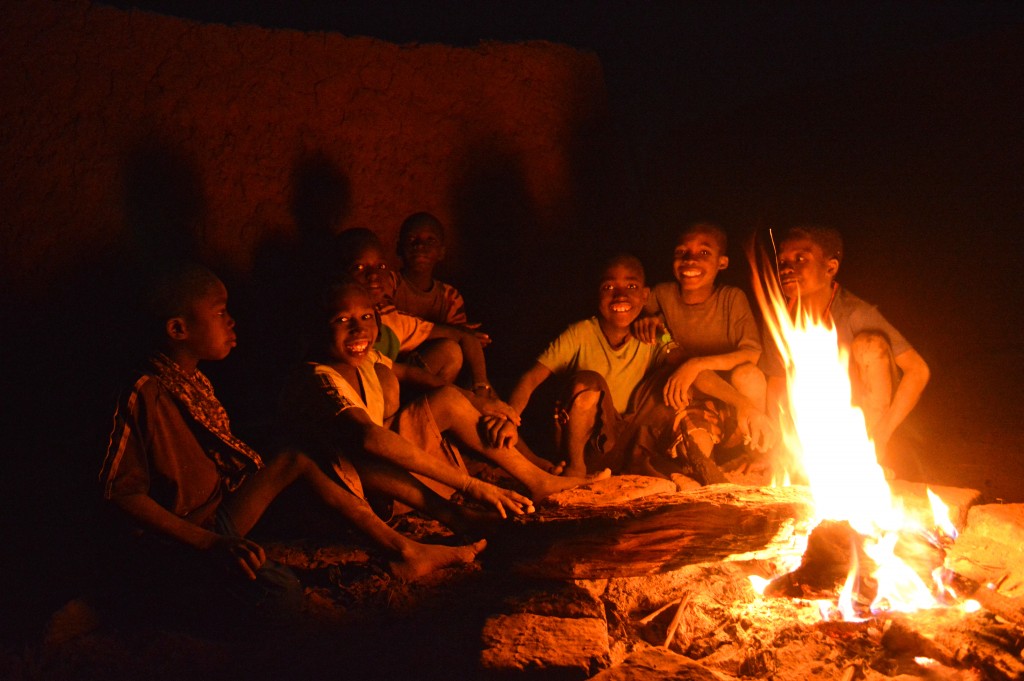
Village children attending a Quran recitation class by the campfire. Village of Sebendourou on the Malian side of the roadless Mali-Burkina Faso frontier. We spent our first night safely camped out in this village…not to mention, enjoyed a meal of freshly killed chicken (Dec. 2015).
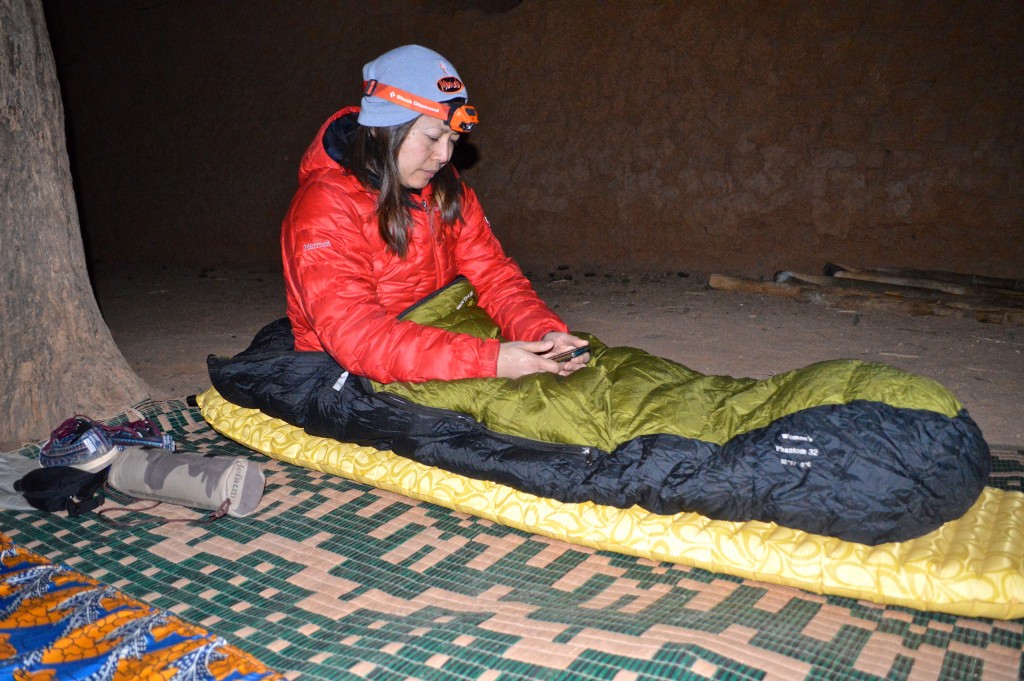
Some light reading while camped out in the village square in Sebendourou (Dec. 2015).
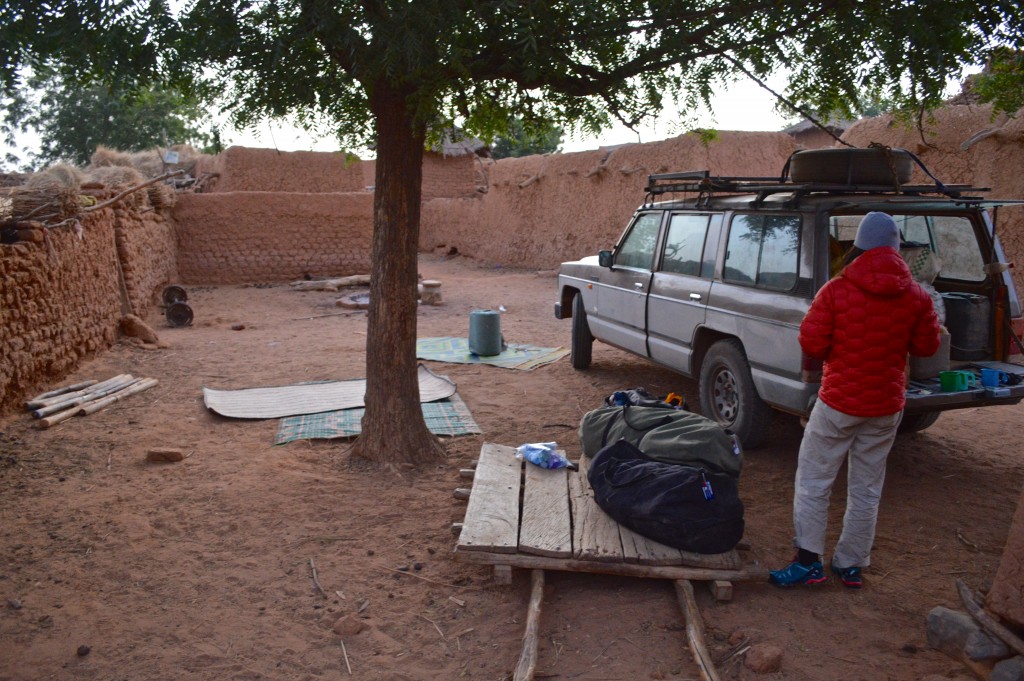
Center of Sebendourou in the morning (Dec. 2015).
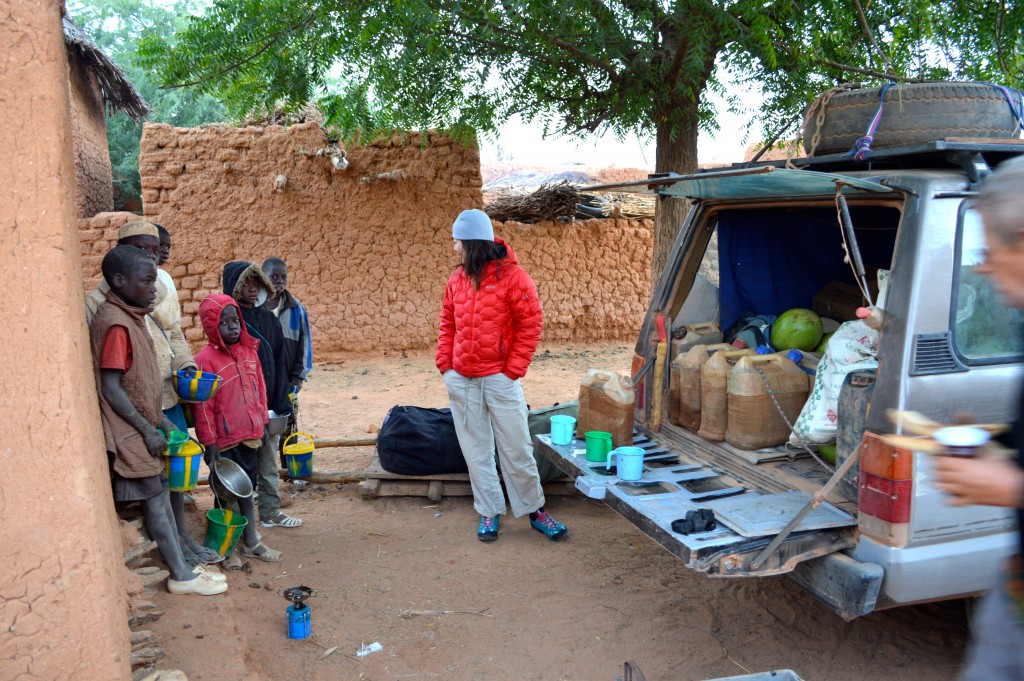
The first of many breakfasts on the tailgate of Salvador’s car. I’d always look forward to that morning coffee!
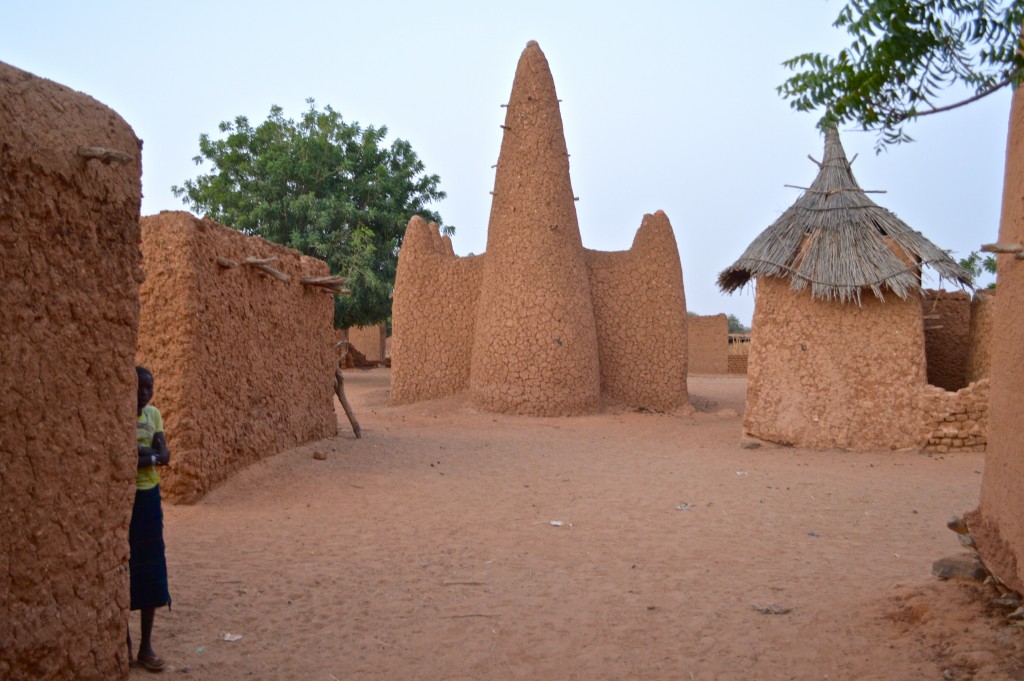
The mosque in Sebendourou (Dec. 2015).
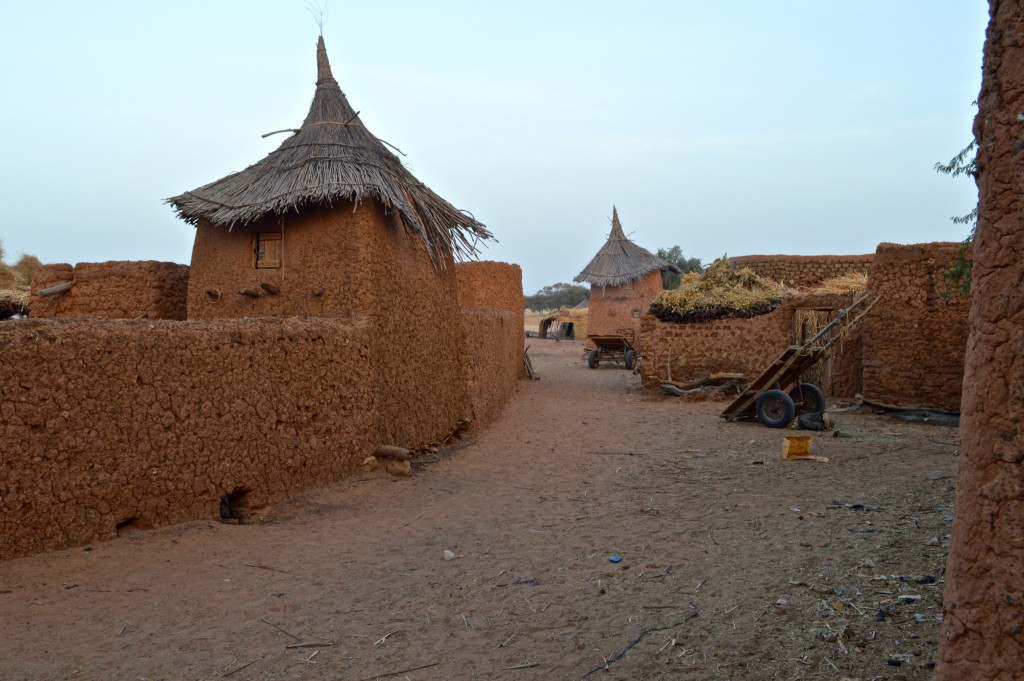
Main street in Sebendourou (Dec. 2015).
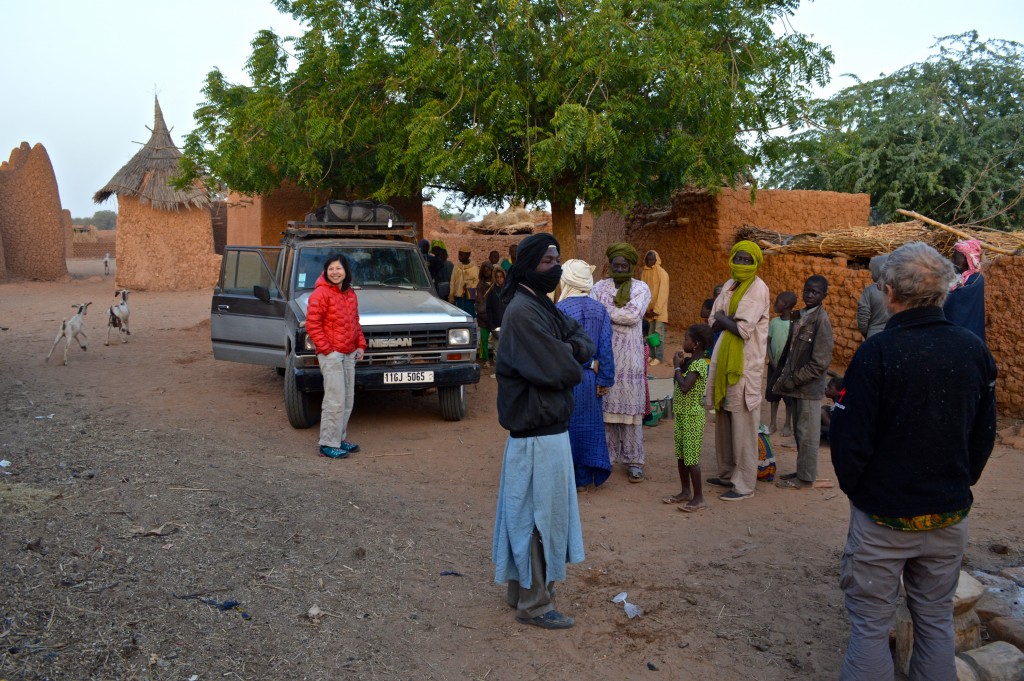
Packing up camp in the morning (with much of the village spectating) for the short ~2h drive to Main De Fatma (Dec. 2015).
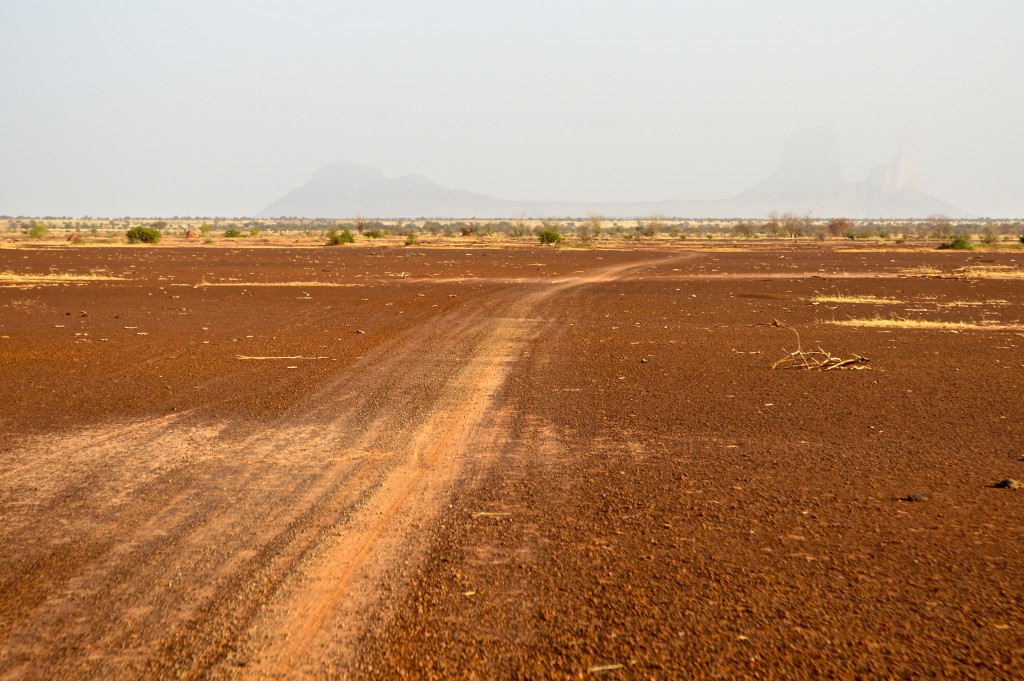
The first views of Main De Fatma as we drive northwards across the Sahel. Look at the lifeless ferratic soils (Dec. 2015).
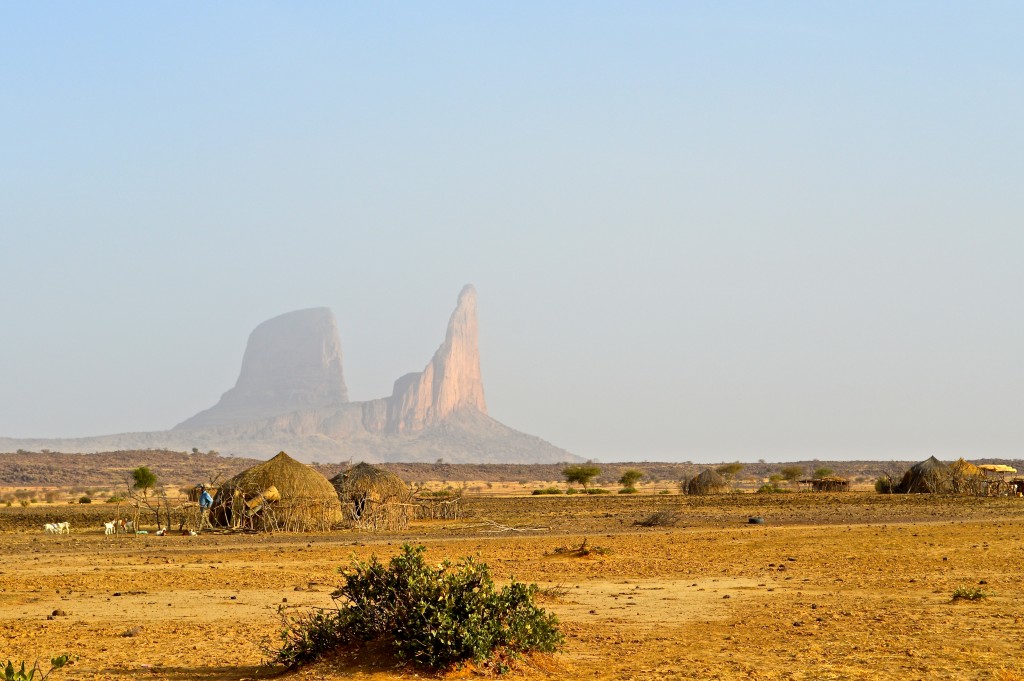
More Main De Fatma, this time with a Peul settlement in the foreground (Dec. 2015).
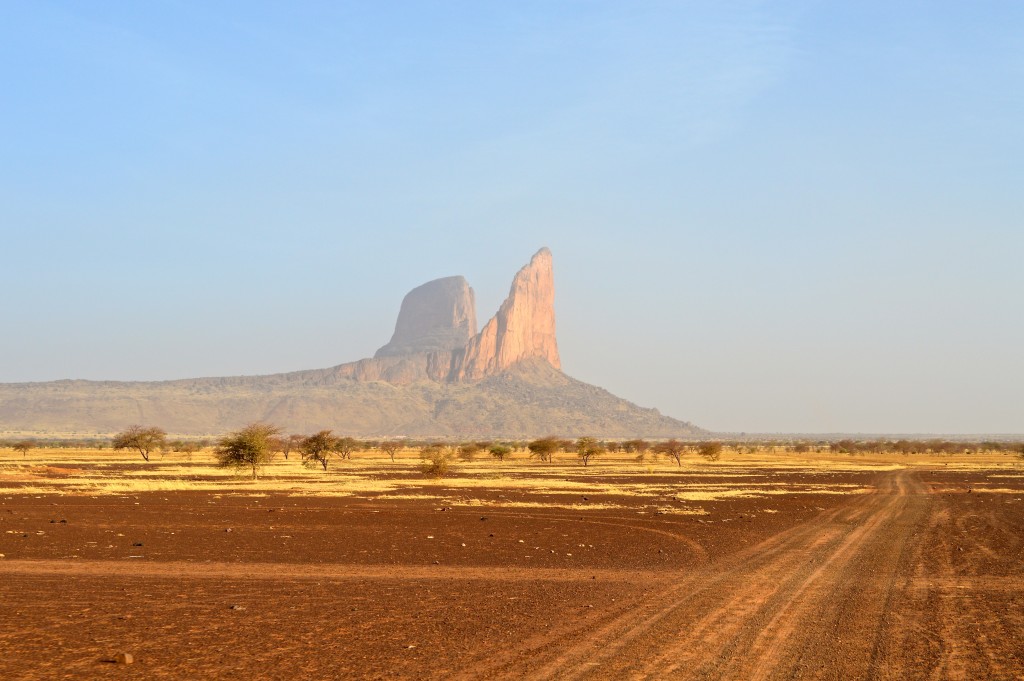
Getting closer.
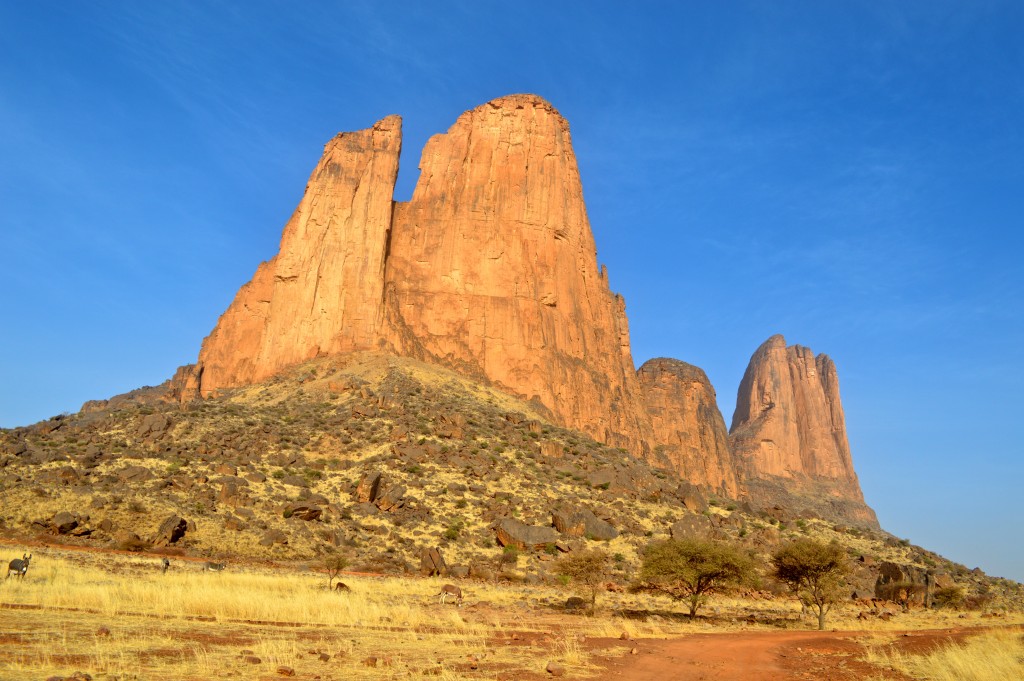
Left to right: Kaga Pamari, Kaga Tondo, Wamderdou (the stocky one) and Suri Tondo (Dec. 2015).
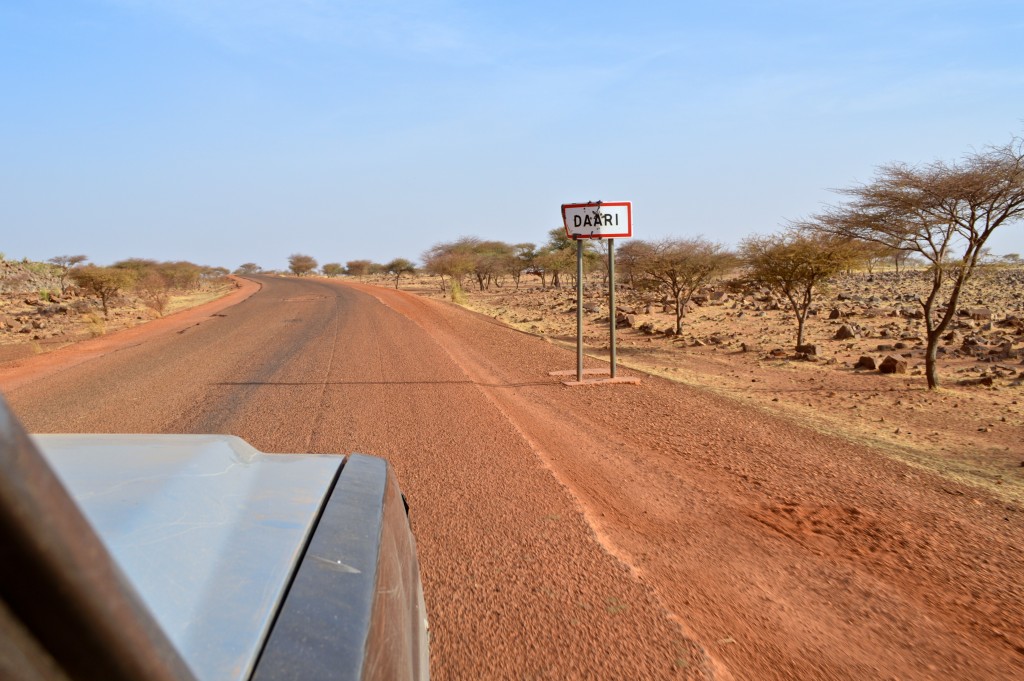
National Road number 15 that passes beneath the Main De Fatma formations. We jumped on this for the final 1-2 km – don’t let this stretch fool you, it’s mostly potholes interrupted by an occasional patch of pavement. Village of Daari is at the base of the formations (Dec. 2015).
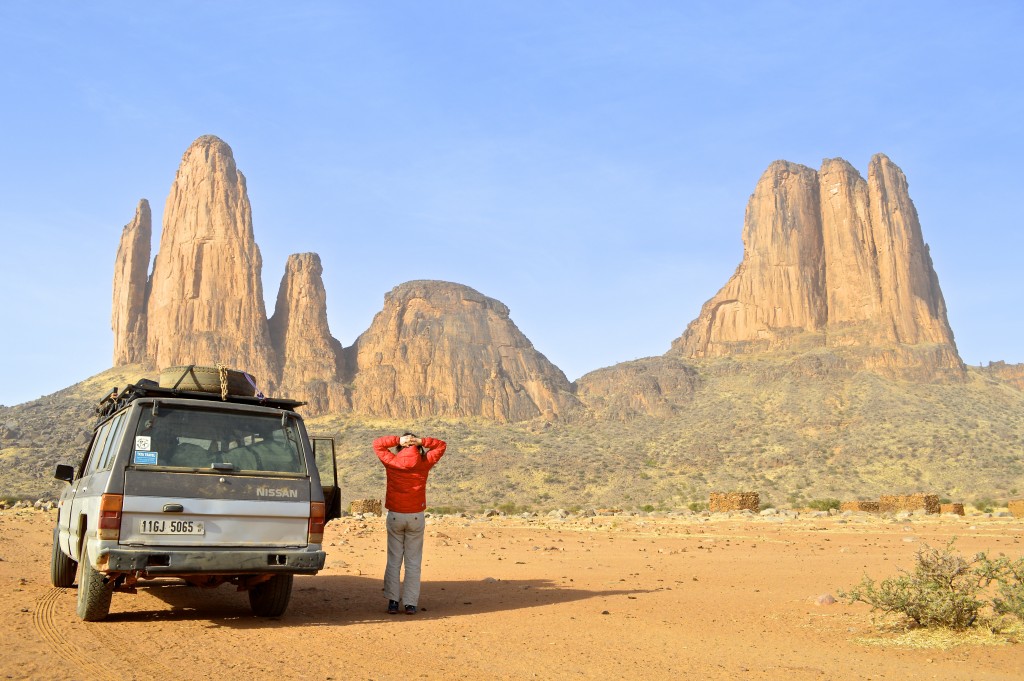
Some 30 hours of flights and a full day of driving (actually being driven by Salvador) and here we are: new playground that we’ve been daydreaming about for the last 5 or 6 years (Dec. 2015).
Go to Mariage Traditionnel.
Go back to Mali.